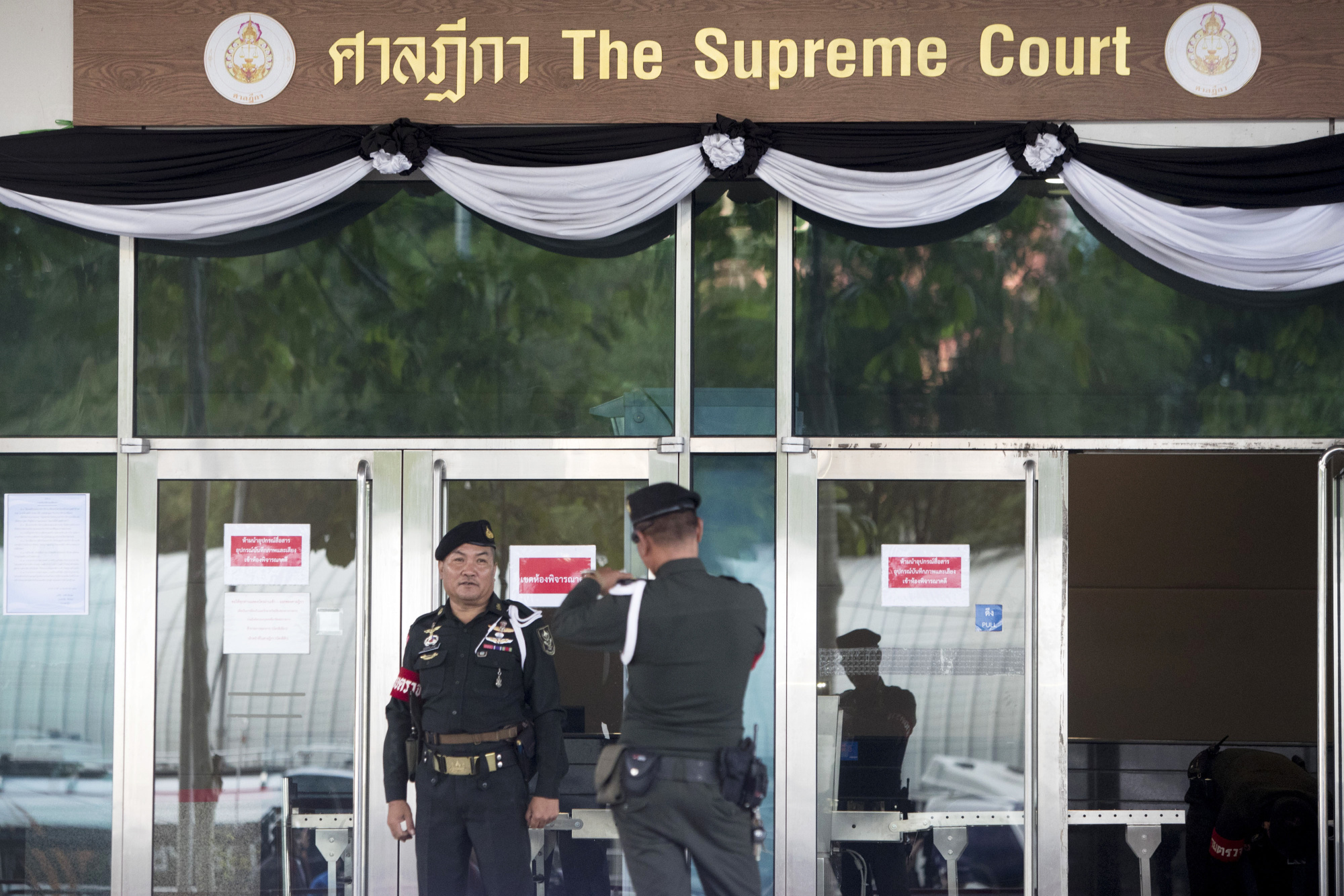A top court in Thailand will rule Friday on charges of negligence against former Prime Minister Yingluck Shinawatra, a verdict that risks rekindling political tensions in Southeast Asia’s second-biggest economy.
Yingluck, whose government was ousted in a 2014 coup, faces up to a decade in jail if convicted of failing to curb losses from her government’s $26 billion rice-purchasing program for poor farmers. She has denied the charges and says the two-year trial is politically motivated.
The verdict threatens to reopen fissures in Thai society that have triggered violent clashes over the past decade between urban royalists and rural backers of exiled former leader Thaksin Shinawatra, Yingluck’s brother. Allies of Thaksin have won the past five elections, only to be unseated by the courts or military.
“A ‘guilty’ or ‘not guilty’ verdict will infuriate one side or the other of Thai political society,” said Paul Chambers, research director at the Institute of South East Asian Affairs in Chiang Mai. “Thailand remains incredibly divided over the Shinawatras, 16 years after Thaksin was first elected.”
Yingluck, Thailand’s first female prime minister, was impeached in 2015 and banned from politics for five years by the legislature for alleged corruption in the rice-purchasing program. She was also hit with a 35 billion baht ($1 billion) fine over the allegations of negligence in overseeing the policy, which purchased grain at above-market rates to help farmers.
Appeal to Supporters
Yingluck on Thursday urged her supporters to avoid thronging the court complex in Bangkok, as General Prayuth Chan-Ocha’s military administration steps up security to avert unrest. A ruling is also due in a related case against Boonsong Teriyapirom, who was commerce minister in Yingluck’s government.
Investors will be watching the outcome of the trial closely. The benchmark SET index of stocks has climbed 2 percent this year, one of the worst performers in Asia, weighed down in part by a climb in bad loans in Thailand. Bonds have proved a bigger draw for foreign investors, helping to make the baht the region’s top-performing currency in 2017.
"An acquittal would relieve any concern about follow-up violence," said Win Udomrachtavanich, chairman of Ktb Securities (Thailand) Co. in Bangkok. "A verdict against Yingluck would add downside risk since political uncertainty will climb. It’s hard to predict what would happen next in this scenario."
The junta clamped down on political activity after seizing power three years ago following a period of unrest, pledging to restore stability. The current stretch of military rule is one of the longest since the 1970s, in a country with a history of coups since the end of absolute monarchy in 1932.
The promulgation of a new constitution in April set the stage for a possible return to democracy in 2018, though a date for elections has yet to be announced. Prayuth said in a speech Thursday that the country would return to a democratic path soon.
A guilty verdict would hurt the chances of the Thaksin-backed Pheu Thai in the next election, according to Florian Reinold, regional coordinator in Thailand for the Robert Bosch Foundation’s Lectureship in Asia scholarship program.
"If Yingluck is found not guilty, it will give a push for Pheu Thai for the elections next year, which is probably something the current military government would not be in favor of," Reinold said. – Bloomberg
